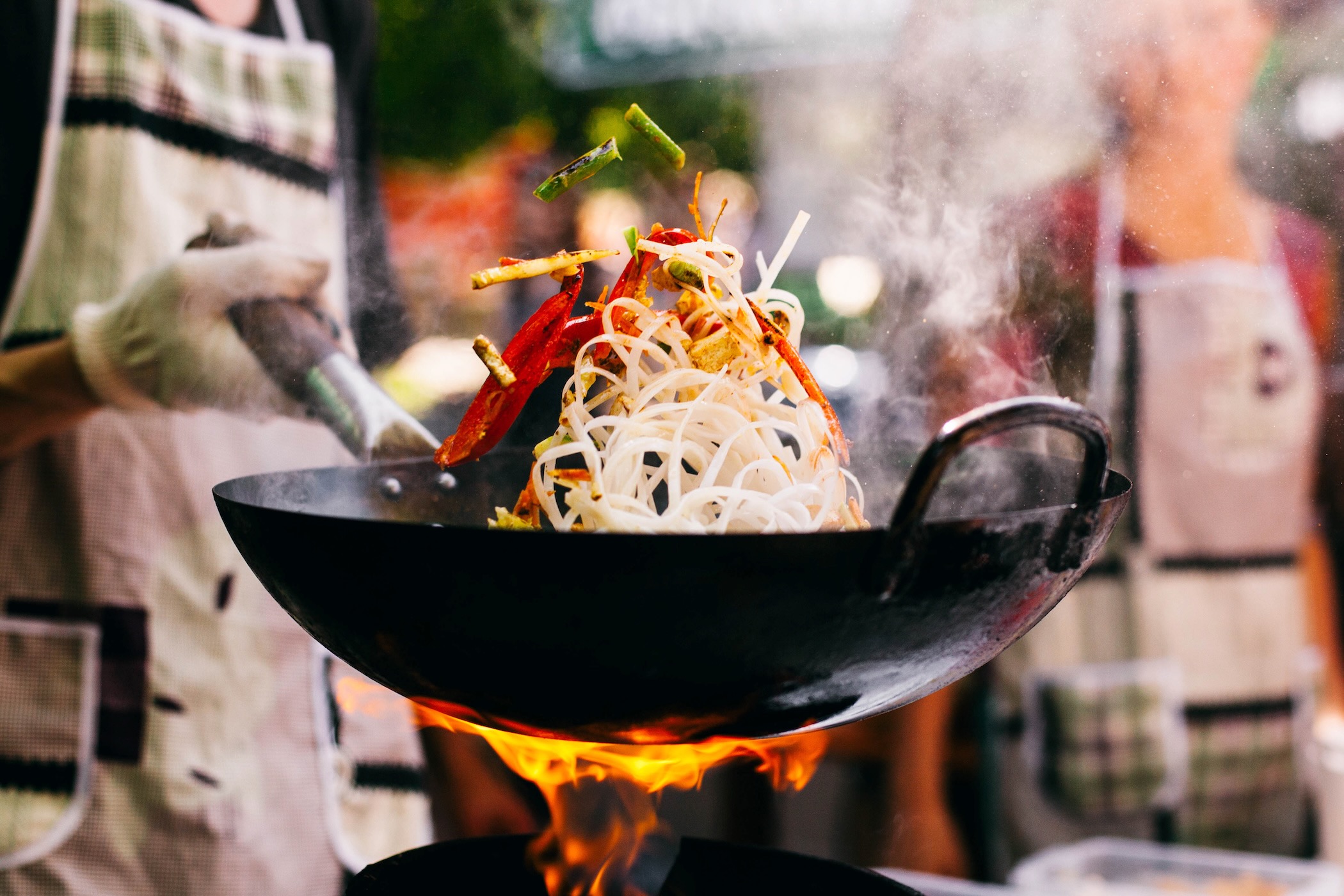What Thickness Should Your Wok Be for Optimal Barbecue Results?
Written By James Morgan
The query, 'how thick should a wok be', is one that occupies the minds of many barbecue enthusiasts. This seemingly simple question harbors significant ramifications for your grilling success. Do you want your grilled veggies to possess the perfect sear? Or perhaps you're seeking that flawlessly crispy texture in your stir-fries? Then, let's delve into the dynamics of wok thickness and how it's pivotal for barbecue aficionados.

Understanding the Importance of Wok Thickness
The thickness of your wok substantially dictates how it conducts and retains heat. A wok that's too thin might heat up too rapidly and fail to distribute heat evenly, causing your food to cook unevenly. Conversely, a wok that's too thick may take longer to heat up, but it ensures a steady and even cooking temperature, essential for those delicate barbecue ingredients.
Why Wok Thickness Matters for a Barbecue
For those who love the thrill of barbecue grilling, the right wok thickness is quintessential. Generally, a wok with a thickness of 1.5 to 3 mm is ideal for most barbecue tasks. This balanced range ensures that the wok heats up well and retains enough heat to quickly sear meats and veggies without overcooking or undercooking any parts.

Materials and Their Impact on Wok Thickness
The material of the wok is another critical aspect to consider. Carbon steel is a popular choice due to its excellent heat-conducting properties, allowing for a thickness range of 1.5 to 2.5 mm. While cast iron woks, known for their superior heat retention, often necessitate a thicker base, around 2.5 to 3.5 mm, to maximize their benefits.
Carbon Steel Woks
Carbon steel woks are beloved for their lightweight nature and quick heating attributes. However, their performance heavily relies on proper seasoning and thickness. Learn how to season your wok correctly to get the best out of it.
Cast Iron Woks
Contrarily, cast iron woks might seem cumbersome, but their thickness facilitates superb heat retention, which is excellent for slow grilling processes. It's imperative to pay attention to heat control when using thicker, cast iron woks to avoid burning or undercooking your food.
:max_bytes(150000):strip_icc()/GettyImages-634758127-2000-7e34aa696c3949ffa0b741a5520c79d5.jpg)
Types of Food and Ideal Wok Thickness
Your choice of food also influences the ideal wok thickness. For stir-frying vegetables or delicate seafood, a thinner wok in the range of 1.5 to 2 mm would suffice. Conversely, for grilling heavier cuts of meat, a thicker wok will hold heat longer and provide a more consistent cooking surface.

Seasoning and Maintenance
Maintaining the ideal cooking surface isn't just about choosing the right thickness; proper upkeep is paramount. Regular seasoning contributes to a resilient, non-stick surface, vital for optimal performance. Discover how to clean a scorched wok and retain its perfect condition.
Expert Tips for Barbecue Enthusiasts
Understanding wok thickness isn't the only trick up your sleeve. Incorporate these expert tips for unbeatable grilling outcomes:
- Maintain a consistent heat to keep the wok well-tempered.
- Always preheat the wok to seal in flavors immediately.
- Use oils with high smoke points, like peanut or canola oil.
Furthermore, know how to cook with a wok to maximize the results.
Faq Section
What is the best thickness for a wok?
A wok with a thickness between 1.5 to 3 mm is generally ideal for all-around use, catering well to various barbecue techniques.
Which is better, carbon steel or cast iron woks?
Both materials have their merits. Carbon steel is lightweight and heats up quickly, whereas cast iron retains heat better and is excellent for slow cooking.
How should I maintain my wok?
Proper seasoning and regular cleaning are essential for maintaining your wok. Refer to our guide on cleaning a wok with a bamboo brush for best practices.
As an Amazon Associate, I earn from qualifying purchases.



